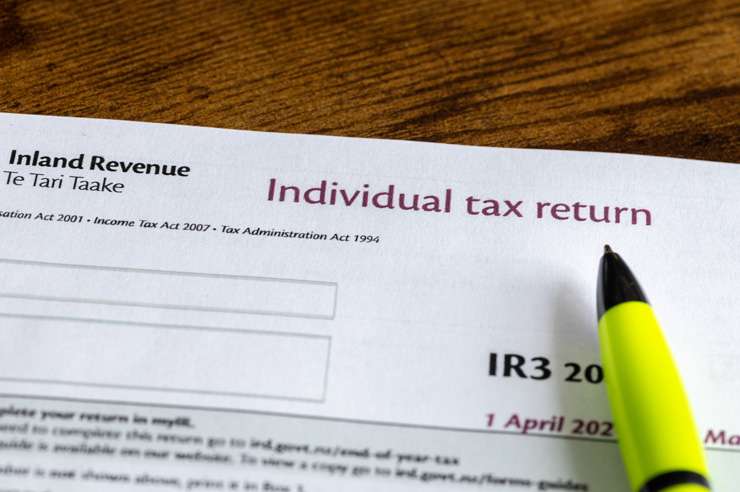The process isn't over once the hammer falls or a sale price has been agreed. Welcome to the business end of selling your home, a period in which you'll be completing paperwork in between packing up your belongings and planning your next move. Below, we'll walk you through not only the sale process but also what comes after, including settlement.
Accepting an offer on your property
The offer process varies depending on the method of sale you use. At an auction, the highest bidder wins, providing the reserve price is reached. The ‘offer’ is unconditional. You don’t need to accept the first offer, or lower your reserve at auction, unless you choose to. However, as the old adage goes, the first offer is often the best offer.
For deadline sales and tenders, offers are provided in writing and you can choose which one to accept, if any.
Start your property search
During a negotiation, the prospective buyer can make an offer and the seller can make a counter-offer. This process continues until a price is met that is acceptable to both parties.
Important information
- If you haven’t yet appointed a solicitor, now is the time to do it.
- Offers will usually be presented to you on a signed sale and purchase agreement already signed by the buyer.
- You don’t need to accept an offer.
- Whenever you are negotiating with a prospective buyer, you can counter-offer via the real estate agent at any time to attempt to get the buyer to offer more.
- Buyers will often include a number of ‘conditions’ as part of their offer. If there are conditions there will be a period of time within which they must be met. Once that date passes the contract goes “unconditional”, meaning there is no way for the buyer to back out.
- Be very careful if you receive an offer from an agent or his/her relatives. Agents are required by law to be transparent about any conflicts of interest and must provide an independent valuation at their cost.
Understanding the sale and purchase agreement
The sale and purchase agreement is a legally binding document that outlines the price and conditions of a sale. In New Zealand most agreements are based on the ADLS/REINZ Sale & Purchase of Property agreement.

Once you have sold your property, you can begin the task of packing up and moving your belongings to your new home. Photo / Getty Images
Even so, there are many different clauses that can be included, which means you should always arrange for your lawyer to review the document before signing.
Sales by tender or auction use a different version of the ADLS/REINZ agreement. Developers selling brand-new properties often have their own bespoke agreement.
The agreement should include:
- The address of the property
- The names of the buyers and the sellers
- The sale price
- Any conditions (such as subject to finance or building report)
- What happens if conditions aren’t met
- Any chattels included in the sale
- The deposit requirements
- Dates that the agreement will go unconditional and the settlement date
- The financial penalties for failing to settle on time.
What happens after you accept an offer?
Once you agree on the price and any conditions, you sign and date the sale and purchase agreement. Once you sign the sale and purchase agreement you can’t back out unless it relates directly to a condition in the document.
Make sure your lawyer is involved at this stage to avoid hidden surprises.
At this stage, a 10% deposit is usually paid into the real estate agent’s trust account.
With a tender, however, the deposit is paid when the buyer makes an offer. The deposit is returned if the tender is not successful.

The exchange of contracts is the formal process that creates a binding contract for the sale on the agreed terms. Photo / Getty Images
Sometimes buyers negotiate a lower deposit such as 5% or a later date for payment. Even during an auction buyers can seek a “variation” for a lower deposit than the usual 10%.
After the sale and purchase agreement is signed and dated by both parties, there is a period of time (such as six weeks) from “exchange” (of contract) until “settlement”. Settlement is the day the sale goes through and you receive your money.
A lot goes on during the settlement period.
What sellers should expect during the settlement process
Settlement is the legal process of transferring the property to the new owner. The key legal steps toward settlement are:
- Exchanging contracts. This means both parties have signed the sale and purchase agreement.
- The deposit is paid.
- Going “unconditional” when any conditions of sale are fulfilled, after which neither side can pull out.
- A pre-settlement inspection by the buyer to ensure the home is in the same condition as it was when the contract was signed.
- Settlement day, when the property title, money and keys change hands.
What happens during the settlement period?
Your lawyer will handle much of the settlement process once you have exchanged contracts. It’s the lawyer’s job to deal with issues related to conditions and the process of settlement day, but will contact you if there are decisions to be made.
How long does it take to settle?
After “exchange”, there is usually a period of time such as six weeks until “settlement”. Sometimes it’s much shorter or it can be longer such as three or six months. The length of time is down to what you and the buyer agree to.

If the property you have sold is not your main residence you may be liable to pay tax on the proceeds of the sale. Photo / Getty Images
Pre-settlement inspection
In between exchanging contracts and settlement day, the buyer will do a pre-settlement inspection. That’s to ensure that the home is in the same condition it was when the contract was signed.
If there are any defects that were not present when the contract was signed, the buyer may request:
- Repairs are made before settlement
- A reduction in the purchase price to cover the cost of doing the repairs themselves, and
- To retain some of the sale proceeds (the amount being agreed by both parties) to be paid post-settlement after the repairs have been carried out.
What happens on settlement day?
Settlement is the day the sale goes through and the money changes hands. A lot happens on this day, but your lawyer does most of the work. Your lawyer will liaise with the other lawyer to ensure any issues are resolved.
On the day, the buyer’s lawyer pays the purchase price into your lawyer’s trust account. Your lawyer repays (discharges) the mortgage on your behalf, and pays out the real estate agent’s fees and other “disbursements” (costs or expenses). The remainder is transferred to you, or if you’re buying the same day, to a third lawyer.
Once the money has been received your lawyer will release the documentation electronically to the buyer’s lawyer who will submit the documentation to Toitū Te Whenua Land Information New Zealand (LINZ) to register the transfer of the title to the new owner.
Once this is all done, your real estate agent will release your keys to the new buyer. Sometimes it’s a very long day, with settlement not happening until late afternoon or evening.
Moving out
If you haven’t already done so, you move out on settlement day. Sometimes it’s less stressful if you can do this in advance. Among the tasks you should complete are:
- Taking meter readings before you leave and cancel contracts with the utilities companies. (Your lawyer will inform the council and water company that you have moved.)
- Changing your address with your bank, IRD, council, insurance companies and any other company that has your address on file

Your real estate agent will charge commission on the sale of the house. Photo / Getty Images
Do you pay tax when you settle? If so, when?
Owner-occupiers rarely pay tax on property sales. Usually when tax does need to be paid on the sale proceeds of a home it’s investors who are caught by tax rules. Even then, not all investors need to pay tax.
The most common situation where sellers need to pay tax on their gains is as a result of the Inland Revenue Department’s “bright-line” rule. That applies to investors mainly who have investment property for less than the number of years set by the bright-line rule when they sell. Owner-occupiers who have never let their home to tenants are exempt. If, however, the property was let for some of the time it was owned, it could be subject to this tax.
Property traders whose business is buying and selling homes pay income tax on their gains even after the end of the bright-line period. In rare circumstances owner-occupiers who show a pattern of buying and selling to make a profit get caught by the trading rule or the bright-line test.
The other tax rule that occasionally catches owner-occupiers is the associated persons rule. In short, if you’re closely associated with a property trader, developer, or builder, your property sales might be subject to income tax. Associated usually means married, related to, or in business with.
What if my property doesn't sell?
Some of the common reasons properties don’t sell after that or by negotiation/tender/deadline sale is bad timing, they’re overpriced, in a poor state of repair, very dated, or too personalised to the existing homeowner’s tastes.
If the property doesn’t sell, you need to consider if the price is right for the current market. If you can wait, take it off the market until next season. It may not be the right time to sell. Or perhaps you haven’t chosen one of the best ways to sell your house. You can choose to relist with another agent. Be very careful of paying double commissions if you are not off the hook from the last contract, or sell to a buyer who was introduced by the first agent.



















































































